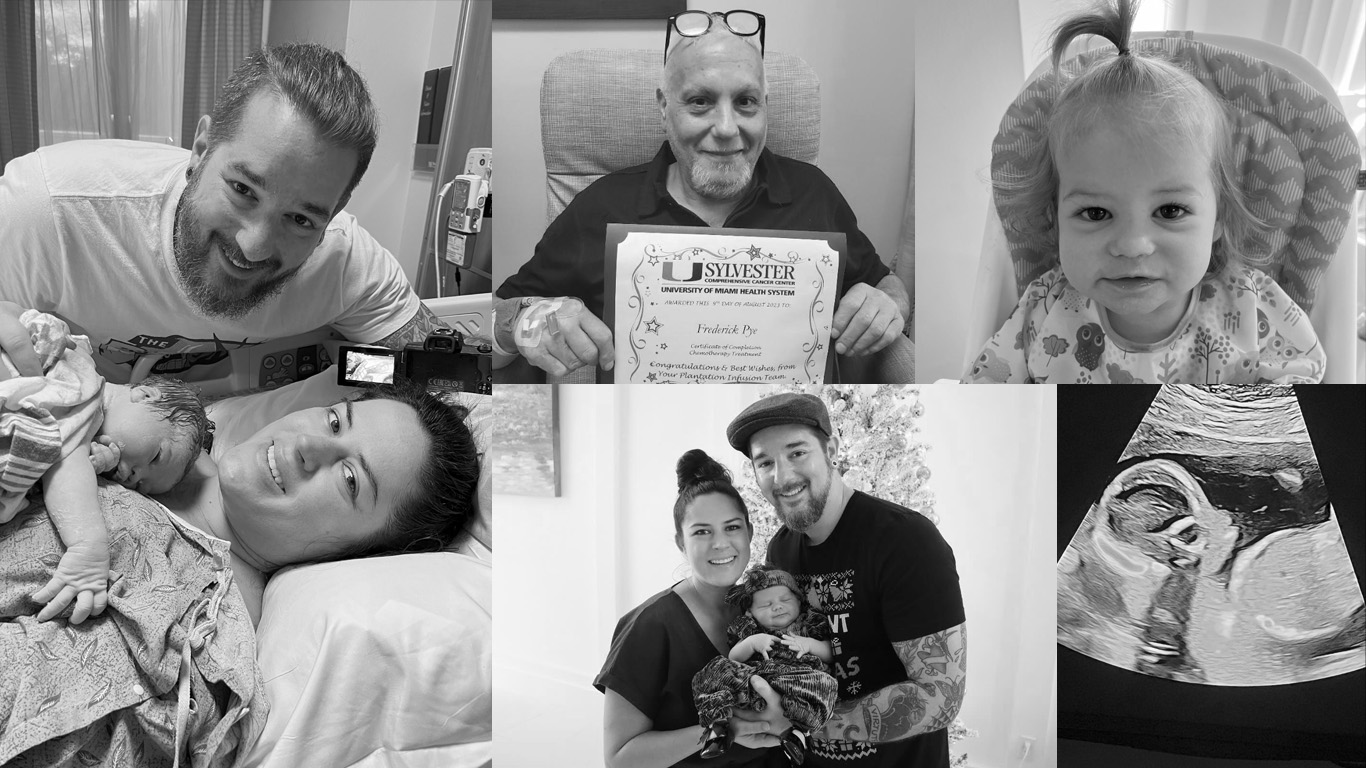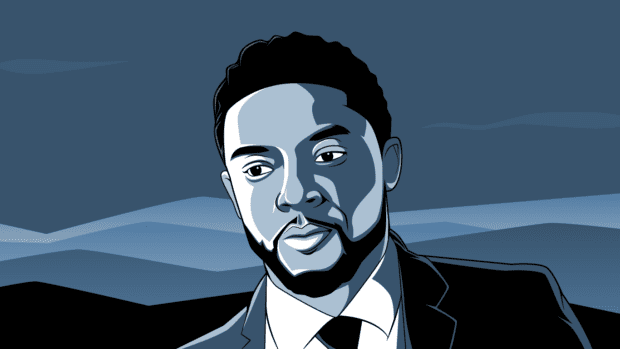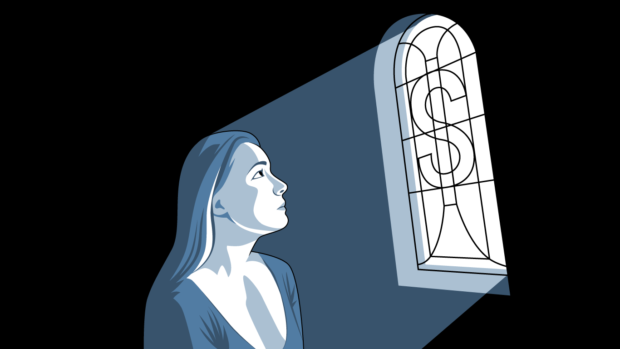
One week after learning I was going to be a new father, I learned my own father had cancer.
That got me thinking about life and death – and what would happen to my daughter if I weren’t here.
People may find that morbid, but I don’t. Thinking about mortality pushed me to make sure my daughter would be financially secure if something happened to me.
That’s the opposite of what Debt.com’s Death and Debt survey found, and it worries me.
In a poll of 1,000 Americans, 3 in 4 said they “get uncomfortable thinking about death.” Even more concerning, 3 in 4 of them say “discomfort stops them from planning for their death.”
I’m 36, in overall good health, and far from rich – I’m a journalist, and my wife is a teacher. If we can get our affairs in order, I know the 808 survey respondents letting their fear stop them from planning their deaths can, too.
Here’s what I did. And before you get the impression that I’m going to tell you some simple how-to estate planning guide, forget it.
This process took about a year and a half, from my first day researching life insurance to the moment I signed my last will and testament with a lawyer.
Coming to terms with mortality
On my 34th birthday, my wife, Elizabeth, woke me up after a night out drinking and told me she had taken a pregnancy test, and it was positive. In a drunken state, I raised my head from the pillow and said, “That’s great, babe,” and closed my eyes.
Then, my mind started racing. It was like delayed comprehension. My eyes shot open, and life has been different since.
The next day, my parents took me to play mini golf for my birthday. Elizabeth and I were nowhere near ready to tell them she was pregnant, and that’s when I realized my dad was keeping something from me, too.
He’s a lifelong cigarette smoker who always had a cough due to his habit. But while standing next to him, I couldn’t help but focus my attention on the wheezing coming from his chest. It sounded like a shop vacuum clogged with water.
I’d heard that noise before when my grandmother was laid up in a hospital bed during her third and final battle with lung cancer.
My dad may not have known Elizabeth was pregnant, but I knew he was sick. A week later, he would confirm my assumptions. My dad had lung cancer, just like his mother.
Why I started planning for my death
I experienced a wide spectrum of emotions as I visited a wide spectrum of doctors. One day, I’d drive my wife to the obstetrician. Then, another, I’d drive my dad to chemotherapy. My wife would need to see an at-risk specialist. Then, my dad had to see a radiation oncologist.
I choked up the first time I saw my daughter’s sonogram. I choked up again when my dad texted me a photo of him, hairless, holding a certificate, congratulating him for finishing chemotherapy.
I think most new parents experience a level of fear. What if the baby doesn’t make it to term? What if my wife’s health is in danger? What if I fail as a father?
The anxiety was cruel and emotionally taxing. What if my dad didn’t live to meet my first child?
None of these questions could be answered easily. Most never were.
Making my plan
Despite writing about personal finance for the past eight years – and covering life insurance a time or two – I’d never considered getting a policy. My dad never had one, and money wasn’t a big topic in our household. I had to figure this out on my own.
My emotional roller coaster pushed me to learn as much as possible. Given my career, I saw value in paying a financial planner for the advice I couldn’t get from my dad. Charles, my financial planner, had worked with my in-laws for 30 years. They always say he’s a major reason they’re happily retired.
Over dinner, he congratulated my wife and me before shifting to a more serious conversation. He had actually advised against life insurance a few years before, saying I had bigger priorities – like paying down student loans. But now, with a baby on the way, he insisted I needed a $1 million, 20-year term policy.
Why that much? The USDA estimates that raising a child costs more than $250,000 – and that doesn’t include college expenses.
Charles clanked his beer glass against mine in celebration. A few days later, he arranged a call with an insurance agent.
The strangest insurance policy I’ve ever bought
I once changed auto insurance policies in 10 minutes while sitting in a car dealership. I pulled up the Geico app, added a new car, and had a policy before driving off the lot.
Life insurance? That was a different story.
It took 10 weeks from my first call to the final approval. That process included a phone interview, medical exam, and lab work– all just to prove I wasn’t a huge risk to insure. It makes sense. One policy replaces a car. The other replaces a person’s income.
The process started with a conversation: What was promised to be a 15-20 minute phone interview turned into an hour-long interrogation. I answered questions about my health, lifestyle, and even past recreational drug use. Turns out, mentioning I experimented with mushrooms in college wasn’t a great idea.
“They’re not risk takers; they’re risk assessors,” explained Jerry Vanderzanden, a life insurance expert I later spoke with.
He told me insurers thoroughly vet applications because what they don’t know can cost them money. If you lie – say, claiming you don’t smoke but a Facebook photo shows otherwise – they can deny a payout to your family.
That’s why they don’t just take your word for it.
The at-home medical exam
A few weeks after the call, a nurse arrived at my door with a scale, tape measure, blood pressure cuff, and a urine cup. It felt like a standard doctor’s visit – except it was happening in my dining room.
He took my vitals, had me “fill the cup” in my restroom, and then drew blood right at the table where I eat dinner. It was a little weird.
After that, it was a waiting game. The insurer reviewed my test results, verified my answers, and finally approved my 20-year, $1 million term life policy– just in case I ever get hit by a beer truck.
I pay $40 a month for that peace of mind.
All rollercoaster rides eventually slow down
My daughter’s birthday is three days before my father’s. She’s a happy 15-month-old, and he’s in remission. I felt blessed when he held her in the labor ward for the first time.
I often reflect on this time in my life, and I hope I always will.
As I write this, I can’t help but feel that my outlook on life has changed. I’ve never dealt with stress well. Maybe I sweat the small stuff too much and take life a bit too seriously.
A lot can go wrong in life, and raising a daughter adds a new level of stress. But I stress less knowing I’ve done everything possible to provide for the people I love.
I won’t live forever, and I hope I’m lucky enough to outlive the term in my policy. Having a plan makes me more comfortable with my mortality.
One day, my daughter will understand everything I did for her. Until then, my focus is simply being here.











